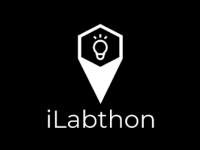Hundreds of organizations want to create innovation laboratories but do not know how to do it. ILabthon is an event created to foster this creation with the support of the best specialists in the public sector. The event helped to create more than 130 laboratory projects across all regions in Brazil and 3 others countries in a single weekend, boosting the Brazilian public sector's innovation ecosystem.
Global: Cross-Border Innovation
The Internet's potential to enable micro, small and medium-sized enterprises (MSMEs) to conduct international commercial transactions has yet to be fully realised. With an emphasis on computational approaches to trade policy design and delivery, SUBREI has launched a pilot programme to contribute to an open repository of rules in a digital form: an 'Internet of Rules' (IoR).
The IoR will expand access to cross-border transactions and improve use by people and machines alike.
Procurement organizations have limited resources and decide which procurement solutions to pursue that will bring the greatest benefit to their public sector customers. The Emerging Markets initiative solicits insights directly from the private sector, offering an opportunity to provide ideas that are innovative and forward thinking, to anticipate and proactively meet the needs of multiple governmental entities throughout the country.
European Border regions face obstacles in diverse domains, hampering cross-border interactions and development. b-solutions provides an innovative way to support border regions in identifying the root causes of obstacles and devising solutions pathways in two ways:
i) how public support is provided: a legal expert working directly with the beneficiary on a obstacle (i.e. no red tape+cost effectiveness)
ii) on each different solutions (legal revision proposals; agreements; revised procedures)
The Innovation Compass/Recorder helps to better understand enabling factors for public sector innovation and to support governments in identifying fields for improvement and in sharing good practice across institutions and borders. The Innovation Compass builds on the experience from the Scandinavian region, based on statistical surveys and reflective self-assessment. It was developed by a cross-sector network in Germany, Austria and Switzerland.
The Governments of Estonia and Finland are exchanging data across borders in an X-Road Trust Federation. The countries had already developed and implemented their own national data exchange layers based on the X-Road technology. The two instances now communicate with each other in the first international interoperability ecosystem of its kind, facilitating the real-time availability of information on population and businesses in the face of increasing trans-border economic activity.
As space missions increase in duration and distance, it will not be possible to bring all of the required crew consumables (air, water and food). The Deep Space Food Challenge incentivizes innovators globally to advance the field of food production technologies to meet both space exploration and terrestrial needs. This Challenge represents the first of its kind international collaboration between NASA, Centennial Challenges Program (CCP), the Canadian Space Agency and Impact Canada.
Blog
Seeking collaborators: Join us for workshops on innovation through collaboration across borders and…

In previous years, OPSI and our project partners at the UAE Mohammed Bin Rashid Centre for Government Innovation (MBRCGI) developed reports on global trends in public sector innovation. A focus on trends inherently focuses on what governments are already doing. This year, we’re doing things a bit differently and looking at what governments need to be doing more. Namely, we’re focusing on innovation through cross-border and cross-jurisdictional collaboration. As the COVID-19 crisis has…
Submit your innovation today We want to know more about your innovative projects and initiatives—both big and small—that involve bringing together governments from different jurisdictions to collaborate and innovate. The OECD Observatory of Public Sector Innovation (OPSI) and the UAE Mohammed Bin Rashid Centre for Government Innovation (MBRCGI) are excited to launch the 2021 Call for Innovations in government, focused specifically on ways government are innovating through cross-border…
After Government After Shock we invited event hosts to share with us recordings of their events, any write-ups of their event or some after-the-event reflections on their event and what they learnt. This blog post provides an easy reference point to help interested people navigate between these. You can also find these materials on the relevant event listing on the Government After Shock site. Event recordings We have created a YouTube playlist where you can find a...





